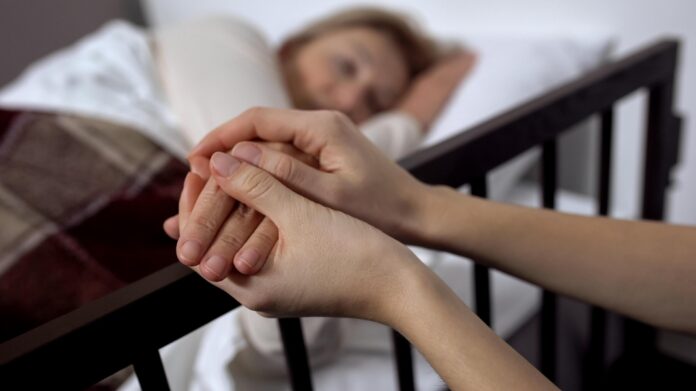A sombre note on the sad and serious issues that many seniors face as the years take their toll and physical and mental health fades and the end of their lives approaches. As with most things, personal association creates awareness.
Recently a very old friend in his mid 80s who had had a truly loving long marriage and family engagement, and a fully shared lively and interesting life, was in hospital recovering from a stroke.
Sadly just on the point of returning home he was diagnosed with a recurrence of bowel cancer with intense pain, facing a major high-risk operation with very minimal chance of success. His choice, with a loving and supportive family environment, was that he’d had a wonderful life and his time had come.
At the same time, I have a close relative who has serious emphysema, back pain, mobility issues, and cancer under treatment who lives in the country. She is in and out of hospital in constant pain and with breathing difficulties. Her family are in Australia, and our family is looking to provide the constant palliative care and support that she currently needs. It is not easy.
This article was sparked by a recent lead editorial by Tracy Watkins, editor of the Sunday Star Times, of the paradox of the Government financial support for euthanasia under the End of Life Choice Act and the dire financial state of the Hospice movement and lack of palliative care in general.
Drawing on her own experience with her terminally ill mother her lead paragraph reads: “Anyone who has had to help someone with terminal cancer navigate the health system will know that there are some things that hospitals do brilliantly well, like treating the diseases and prolonging life. They are not so good at other things like supporting someone once they walk out the door”.
She goes on to say: “The misconception most New Zealanders have about palliative care is that it’s first world standard and that there will be a bed for us if we need it. And it’s true that the end of life care is world class for those who can access the scattering of hospice beds in New Zealand.
Hospices do their job incredibly well. But there are not enough of them.
“So for everyone else, dying with a terminal illness in New Zealand can be a chaotic, confusing, and bewildering time of not knowing where to turn for help. It can also be the opposite of death with dignity – a painful, hideous death, thanks to the paucity of palliative care specialists.”
The same Sunday Star Times edition has a sobering investigation by Nikki McDonald into the shocking state of hospice funding in New Zealand, a wake-up call for us all.
“Painfully, it seems to be that you would be better off choosing euthanasia , rather than roll the dice on accessing professional end-of-life care in a hospice.”
As Nikki’s article points out, euthanasia is fully funded, whereas hospices are only partially funded by the Government. They survive, barely, with donations, and by flogging off second hand goods.
“Euthanasia patients can also get a specialist flown to them for free. No such funding is available to fly a palliative care specialist to a terminally ill cancer patient. The fear is that it is not a free choice at all between euthanasia and palliative care when the odds are so heavily stacked against dying patients accessing the sort of palliative care they deserve.”
As one mum told Nikki about the lack of support to manage a dying baby’s pain at home. “We felt very let down.” As Tracy said “we have all been let down.”
Thank your Tracy and Nikki for highlighting this critical issue so expressively and well.
Time for a campaign to get Hospice and palliative care the Government support it deserves.
Talk to your MP now.
Bill Rayner, President, Grey Power North Shore


